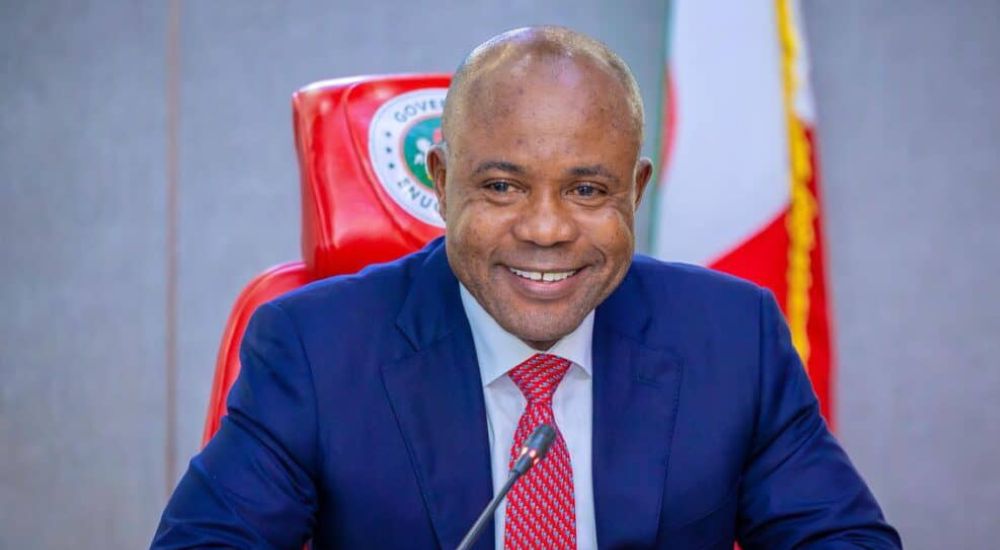Enugu State Governor Peter Mbah has defected from the Peoples Democratic Party (PDP) to the All Progressives Congress (APC). He announced at a press conference in Enugu on Tuesday. Mbah said he made the decision after long reflection and insisted it was necessary to serve the people of Enugu State better and to align with the APC’s vision for development.
The defection came after a dramatic mass exodus within his own administration. In the days leading up to his public announcement, all members of his cabinet reportedly resigned their PDP membership and joined the APC alongside him. In a video confirmed by his media team, state appointees were seen holding APC flags and chanting solidarity slogans with the governor.
Also joining in the wave were legislators, councilors, and local government officials within Enugu State who were said to be preparing to switch party allegiance. Reports indicate that earlier in the day, Sunday Udeh-Okoye, former PDP National Youth Leader and Enugu politician, formally resigned from the PDP, citing ideological drift and party disunity, apparently paving a pathway for wider realignments.
The move represents a major gain for the APC in the Southeast zone, a region historically dominated by the PDP and other opposition parties. With Mbah’s defection, APC strengthens its influence in Enugu State, bringing state government leadership under its fold, and bolsters its narrative of expanding its base across southern Nigeria. This adds to APC’s recent string of defections, particularly among governors and legislators across regions, and reinforces momentum for the party ahead of upcoming elections.
The defection also carries significant implications for Southeast politics. Traditionally, the region’s politics have been anchored by PDP, All Progressives Grand Alliance (APGA), and more recently Labour Party in many states. Mbah’s decision may provoke further defections from PDP ranks in neighboring states, especially those under governor administrations in the zone. Some regional analysts suggest that the defection lowers the isolation of APC in the Southeast and could shift party calculations, especially in terms of resource allocation, federal attention, and alliances.
The PDP, for its part, is expected to respond. Party leaders have often framed defections as symptoms of internal crisis and have vowed to resist further weakening in stronghold states. In this case, Mbah’s departure is likely to trigger internal reassessments of strategy in the Southeast and efforts to shore up loyalty in remaining states.
In practical terms, Mbah’s defection gives APC control of one more state government in the Southeast, which changes the balance of governors under its control in the region, and may sway local elections and party dynamics.
Samuel Aina

